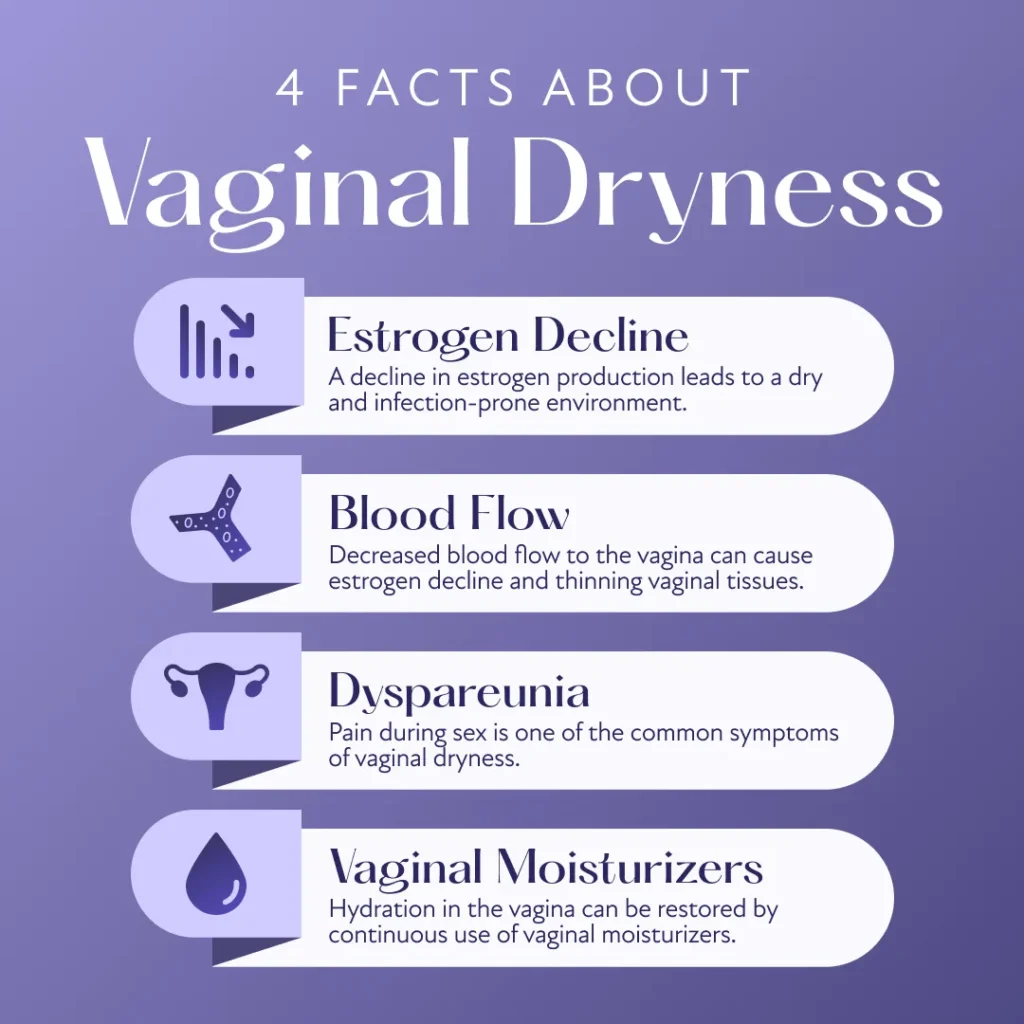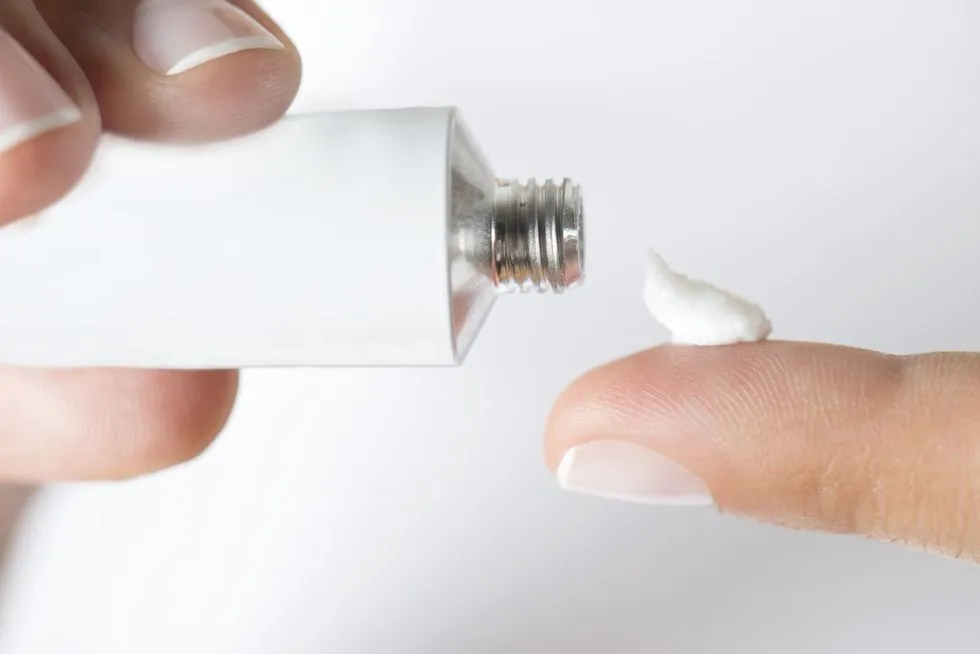Menopause is a natural part of a woman’s life that marks the end of her reproductive years. During this time, the body undergoes a number of hormonal changes that can lead to a variety of symptoms, including hot flashes, mood swings, and vaginal dryness. While these symptoms can be uncomfortable and distressing, they are a normal part of the menopausal process.
One of the most common symptoms of menopause is vaginal dryness. This occurs when the body produces less estrogen, which can lead to a thinning of the vaginal walls and a decrease in lubrication. As a result, many women experience discomfort during sex, as well as itching, burning, and irritation in the vaginal area.
Understanding the causes of menopausal vaginal dryness is key to finding effective solutions. In this article, we will explore the various factors that can contribute to this condition, as well as the treatment options available to help alleviate symptoms and improve overall quality of life.
Causes of Menopausal Vaginal Dryness
There are several factors that can contribute to vaginal dryness during menopause. Some of the most common causes include:
1. Hormonal changes: As women enter menopause, their bodies produce less estrogen, which is the hormone responsible for maintaining the health and elasticity of the vaginal tissues. This decrease in estrogen can lead to a thinning of the vaginal walls and a reduction in lubrication, resulting in dryness and discomfort.
2. Age-related changes: As women age, the body’s ability to produce natural lubrication may decrease, leading to vaginal dryness. Additionally, changes in the pH balance of the vagina can also contribute to dryness and irritation.
3. Medications: Certain medications, such as hormone replacement therapy, can affect hormone levels in the body and lead to vaginal dryness. Other medications, such as antihistamines and antidepressants, can also contribute to this condition.
4. Medical conditions: Certain medical conditions, such as diabetes, autoimmune disorders, and thyroid disorders, can also lead to vaginal dryness. These conditions can affect hormone levels in the body and impact the health of the vaginal tissues.
5. Lifestyle factors: Certain lifestyle factors, such as smoking, excessive alcohol consumption, and a diet high in processed foods, can also contribute to vaginal dryness. These habits can affect hormone levels in the body and impact overall vaginal health.
Solutions for Menopausal Vaginal Dryness
Fortunately, there are several treatment options available to help alleviate the symptoms of menopausal vaginal dryness. Some of the most effective solutions include:
1. Hormone replacement therapy (HRT): HRT is a common treatment option for menopausal symptoms, including vaginal dryness. This therapy involves taking estrogen and progesterone supplements to help restore hormone levels in the body and alleviate symptoms.
2. Vaginal moisturizers: Vaginal moisturizers are products that can be applied directly to the vaginal tissues to help restore moisture and lubrication. These products are available over-the-counter and can be used regularly to help alleviate dryness and discomfort.
3. Vaginal lubricants: Vaginal lubricants are products that can be used during sexual activity to help reduce friction and discomfort. These products are available over-the-counter and can help improve overall sexual satisfaction.
4. Lifestyle changes: Making healthy lifestyle choices, such as quitting smoking, reducing alcohol consumption, and eating a balanced diet, can help improve overall vaginal health and reduce symptoms of dryness.
5. Pelvic floor exercises: Pelvic floor exercises, such as Kegels, can help strengthen the muscles in the pelvic area and improve blood flow to the vaginal tissues. These exercises can help improve overall vaginal health and reduce symptoms of dryness.
Frequently Asked Questions about Menopausal Vaginal Dryness
Q: Is menopausal vaginal dryness a common symptom of menopause?
A: Yes, vaginal dryness is a common symptom of menopause that affects many women during this time.
Q: Can menopausal vaginal dryness be treated?
A: Yes, there are several treatment options available to help alleviate the symptoms of menopausal vaginal dryness, including hormone replacement therapy, vaginal moisturizers, and lifestyle changes.
Q: Are there any natural remedies for menopausal vaginal dryness?
A: Some women may find relief from menopausal vaginal dryness by using natural remedies, such as coconut oil, vitamin E oil, and aloe vera gel. However, it is important to consult with a healthcare provider before trying any new treatment.
Q: Can menopausal vaginal dryness affect sexual satisfaction?
A: Yes, menopausal vaginal dryness can lead to discomfort during sex and impact overall sexual satisfaction. Using vaginal lubricants and moisturizers can help improve lubrication and reduce friction during sexual activity.
Q: When should I see a healthcare provider about menopausal vaginal dryness?
A: If you are experiencing persistent symptoms of vaginal dryness, such as itching, burning, or irritation, it is important to see a healthcare provider for a proper diagnosis and treatment plan.
In summary, menopausal vaginal dryness is a common symptom of menopause that can be distressing and uncomfortable for many women. Understanding the causes of this condition and exploring the various treatment options available can help alleviate symptoms and improve overall quality of life. By working closely with a healthcare provider, women can find effective solutions to manage menopausal vaginal dryness and maintain optimal vaginal health during this stage of life.


